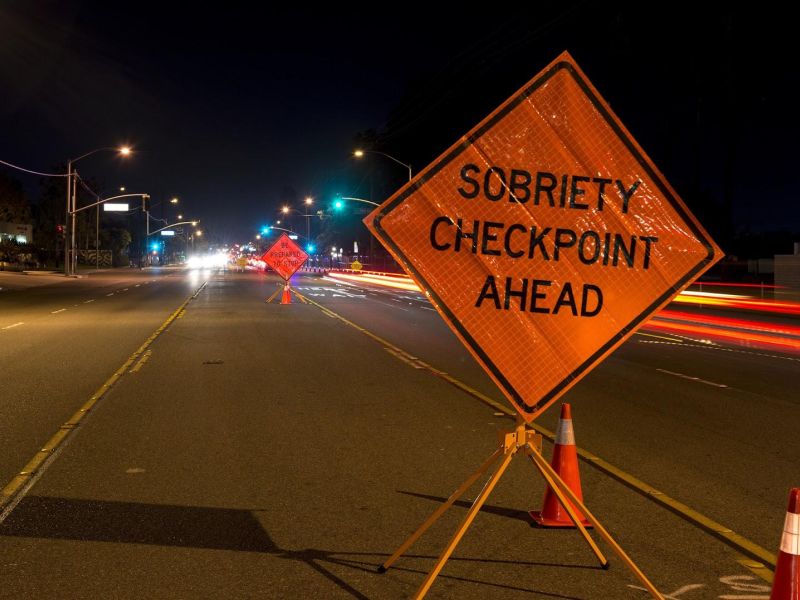
— Aggravated DUI, Breath and Blood Tests, DUI, DUI for CDL Drivers, DUI for Military Members, Federal DUI, Felony DUI, First DUI, Repeat DUI, Second DUI
Sobriety Checkpoints in Virginia: What to Know
What Is a Sobriety Checkpoint in Virginia?
A sobriety checkpoint, also known as a DUI checkpoint, is a temporary roadblock set up by law enforcement to briefly stop drivers and look for signs of impaired driving. The goal of sobriety checkpoints in Virginia is to deter drunk or drug-impaired driving and reduce DUI-related crashes.
Are Sobriety Checkpoints Legal in Virginia?
Yes, sobriety checkpoints are legal in Virginia.
Some drivers believe DUI checkpoints violate the Fourth Amendment’s protection against unreasonable searches and seizures. However, the United States Supreme Court ruled in Michigan Department of State Police v. Sitz that sobriety checkpoints can be constitutional when they are conducted under strict guidelines and for the primary purpose of public safety.
In Virginia, sobriety checkpoints must follow specific rules and procedures. If law enforcement fails to follow these requirements, the legality of the checkpoint, and any DUI arrest that results from it, may be challenged.
What Happens at a DUI Checkpoint in Virginia?
As you approach a DUI checkpoint, you should see clearly marked signs warning drivers of the checkpoint ahead. Once you stop, an officer will usually:
- Ask for your driver’s license and vehicle registration
- Briefly observe you for signs of impairment, such as the smell of alcohol, slurred speech, or bloodshot eyes
- Ask a short, general question, such as “Have you had anything to drink tonight?”
These interactions are designed to be brief. If the officer does not observe signs of impairment, you will typically be allowed to continue driving. If the officer develops reasonable suspicion of impairment, you may be asked to complete further screening.
Do I Have to Show My License at a Sobriety Checkpoint?
Yes. A sobriety checkpoint is considered a lawful traffic stop in Virginia, which means you must provide your driver’s license when asked. An officer may also legally request your vehicle registration and proof of insurance.
Do I Have to do Field Sobriety Tests at a Sobriety Checkpoint?
If an officer has reasonable suspicion that you are under the influence of drugs or alcohol, you may be asked for preform field sobriety tests. If there is no reasonable suspicion, law enforcement cannot make any driver submit to any type of testing.
However, in Virginia, field sobriety tests are voluntary meaning drivers are not required to complete the tests under law. You will not face legal penalties for declining to participate in field sobriety tests, however it is important to understand, that refusing field sobriety tests does not automatically end the stop. The officer may continue the investigation based on other observations.
Can I Avoid a Sobriety Checkpoint?
Yes, you can legally avoid passing through a sobriety checkpoint so long as you do so safely and lawfully.
Acceptable ways to avoid a checkpoint may include turning onto a different road before reaching it or pulling into a parking lot. Attempting to avoid a checkpoint by making an illegal U-turn, speeding away, or violating traffic laws can result in a separate traffic stop and potential charges.
Have You Been Charged with a DUI after a Sobriety Checkpoint?
Fill out the form below to set up a call with a member of our team today!

